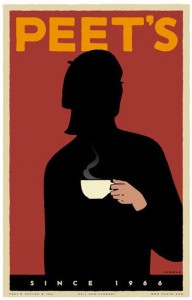
The seed for the Sacramento arena debate between R.E. Graswich and me was first planted on Twitter. Needless to say, it was not an auspicious beginning.
On Twitter, our initial interactions were not so much pleasant as, um, antagonistic. Confrontational. Pugilistic. We butted heads from the beginning and exchanged some choice words.
Clearly it was the start of a good relationship.
For all that I disagree with Bob Graswich on the downtown arena, I admire his initiative in reaching out across the barbed wire that separated us and suggesting that we meet in person to discuss and even debate the issue. I of course knew I was on the right side of our disagreement, but I was forced to acknowledge that he had made one or two valid points.
Meeting in person enabled us to see each other not as enemies but as individuals with different opinions who care about the same thing: the future of our city. As it turns out, Bob Graswich – father of two, happily married man, hardworking writer – is a decent guy.
The problem for many Sacramento citizens is that this whole arena issue is fraught with passion, and it’s played out in the media and the public as a sometimes nasty battle between two groups with polar opposite views. Somewhere between these two extremes lies the truth – and the opportunity for rational discussion.
That’s what we hope to offer people – some facts, some opinion, some data on which to form their own views of the city’s downtown arena plan. And yes, maybe a bit of zeal, a bit of fire. We have some fight in us.
One thing we know about our neighbors in this town: Sacramentans are passionate, especially online, but we are generally reasonable and civil in person. Bob Graswich and I intend to bring that spirit of civil debate and information-sharing to our series of town hall debates and discussions. We hope you’ll join us and ask some thought-provoking questions.
But save your hard questions for him.
Ed. note: This blog post was originally published on the Sacramento Arena Debate website.






